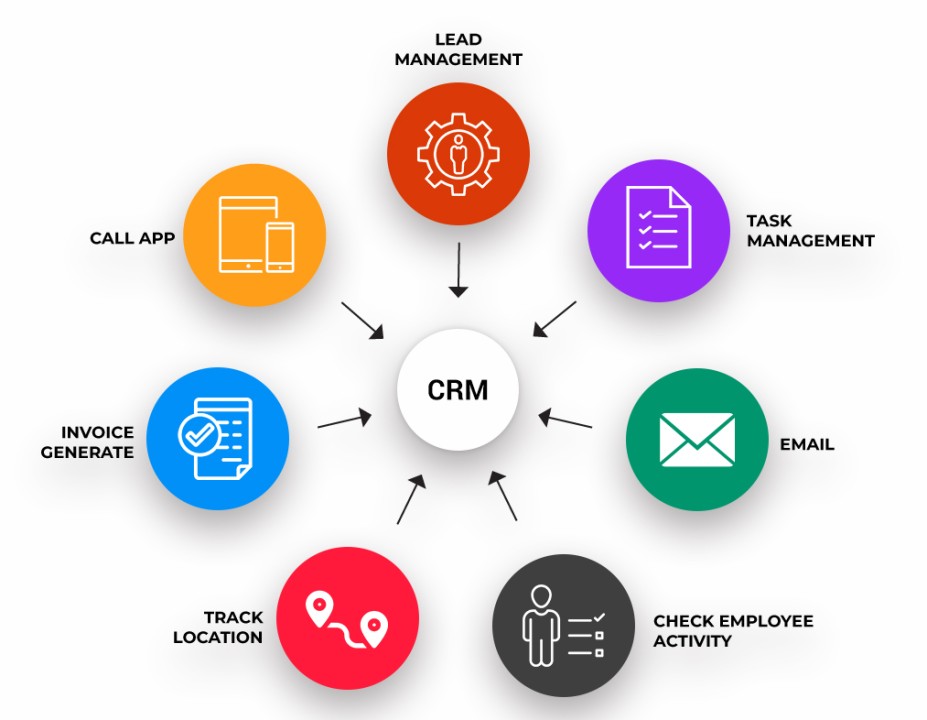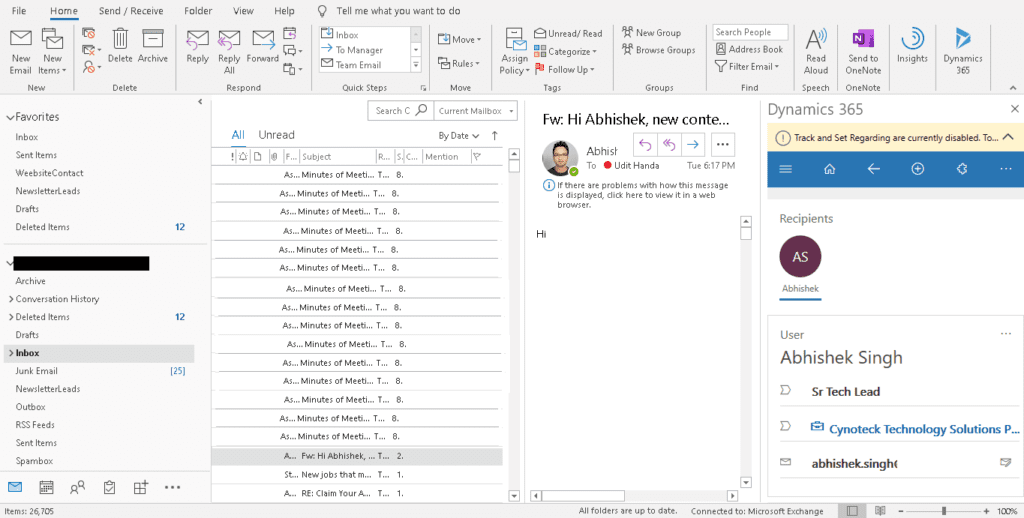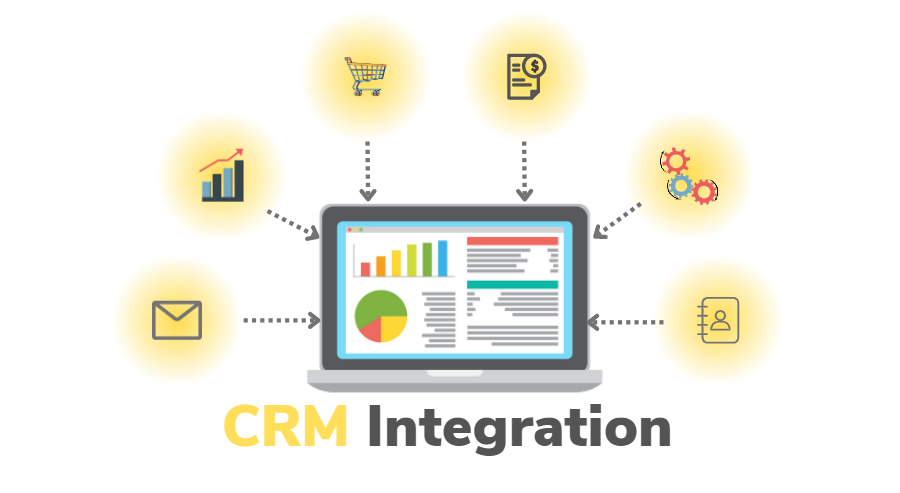Unlock Growth: The Ultimate Guide to Small Business CRM Solutions

In the fast-paced world of entrepreneurship, staying ahead of the curve is paramount. Small businesses, in particular, face unique challenges in managing customer relationships, streamlining operations, and fostering sustainable growth. This is where Customer Relationship Management (CRM) solutions come into play. But what exactly are they, and why are they so crucial for small businesses? This comprehensive guide will delve deep into the realm of small business CRM solutions, exploring their benefits, key features, implementation strategies, and the top platforms available. Get ready to transform your business and elevate your customer relationships to new heights.
What is a CRM Solution?
At its core, a CRM solution is a software system designed to manage and analyze customer interactions and data throughout the customer lifecycle. It’s more than just a contact list; it’s a powerful tool that helps businesses understand their customers better, personalize their interactions, and ultimately drive sales and improve customer satisfaction. Think of it as the central nervous system of your customer-facing operations.
CRM systems typically encompass several key functionalities:
- Contact Management: Centralized storage of customer information, including contact details, communication history, and purchase records.
- Sales Automation: Automating repetitive sales tasks like lead tracking, follow-ups, and proposal generation.
- Marketing Automation: Tools for creating and managing marketing campaigns, email marketing, and social media integration.
- Customer Service: Features for managing customer inquiries, support tickets, and feedback.
- Reporting and Analytics: Data visualization and reporting tools to track key performance indicators (KPIs) and gain insights into customer behavior.
Why Small Businesses Need CRM Solutions
Small businesses often operate with limited resources, making efficiency and customer satisfaction even more critical. CRM solutions provide a multitude of benefits that directly address these needs:
- Improved Customer Relationships: By providing a 360-degree view of each customer, CRM systems enable businesses to personalize interactions and build stronger relationships.
- Increased Sales: CRM tools help sales teams manage leads more effectively, track opportunities, and close deals faster.
- Enhanced Efficiency: Automating tasks and centralizing data frees up valuable time for employees to focus on core business activities.
- Better Customer Service: CRM systems enable businesses to provide faster and more personalized customer support, leading to higher satisfaction.
- Data-Driven Decision Making: Reporting and analytics features provide valuable insights into customer behavior, sales performance, and marketing effectiveness, allowing businesses to make informed decisions.
- Scalability: CRM solutions are designed to grow with your business, accommodating increasing numbers of customers and employees.
Key Features to Look for in a Small Business CRM
Choosing the right CRM solution for your small business can be a daunting task. Here are some essential features to consider:
- Contact Management: Robust contact management capabilities are a must. Look for features like contact segmentation, custom fields, and the ability to import and export data.
- Lead Management: Effective lead management is crucial for converting leads into customers. The CRM should allow you to track leads through the sales pipeline, assign leads to sales reps, and automate follow-up tasks.
- Sales Automation: Automate repetitive sales tasks to save time and improve efficiency. Features like automated email sequences, task reminders, and proposal generation can significantly boost productivity.
- Marketing Automation: Integrate marketing automation features to streamline your marketing efforts. This includes email marketing, social media integration, and campaign management tools.
- Reporting and Analytics: Gain valuable insights into your sales performance and customer behavior with comprehensive reporting and analytics. Look for customizable dashboards and the ability to generate reports on key metrics.
- Mobile Access: A mobile-friendly CRM allows your team to access customer data and manage sales activities on the go.
- Integrations: Ensure the CRM integrates with other tools you use, such as email marketing platforms, accounting software, and social media channels.
- Ease of Use: Choose a CRM that is easy to learn and use. A user-friendly interface and intuitive navigation will minimize training time and maximize adoption.
- Customization: The ability to customize the CRM to fit your specific business needs is essential. Look for features like custom fields, workflow automation, and the ability to tailor the platform to your sales process.
- Scalability: As your business grows, your CRM needs to be able to scale with you. Choose a solution that can accommodate increasing numbers of users, contacts, and data.
Choosing the Right CRM Solution for Your Small Business
Selecting the right CRM solution involves several key considerations:
- Define Your Needs: Before you start evaluating CRM solutions, take the time to clearly define your business needs and goals. What are your primary objectives for implementing a CRM? What features are essential? What are your budget constraints?
- Assess Your Budget: CRM solutions range in price from free to enterprise-level. Determine your budget and choose a solution that fits your financial constraints. Consider the cost of implementation, training, and ongoing maintenance.
- Evaluate Vendors: Research different CRM vendors and compare their offerings. Read reviews, compare features, and consider the vendor’s reputation and customer support.
- Consider Ease of Use: Choose a CRM that is easy to learn and use. A user-friendly interface and intuitive navigation will minimize training time and maximize adoption.
- Prioritize Integrations: Ensure the CRM integrates with other tools you use, such as email marketing platforms, accounting software, and social media channels.
- Seek a Free Trial: Many CRM vendors offer free trials. Take advantage of these to test out the platform and see if it’s a good fit for your business.
- Consider Implementation and Training: Factor in the time and resources required for implementation and training. Some CRM solutions are easier to implement than others.
- Prioritize Customer Support: Ensure the vendor offers excellent customer support. You’ll need help when you run into issues or have questions.
Top CRM Solutions for Small Businesses
The market is saturated with CRM solutions, each with its own strengths and weaknesses. Here’s a look at some of the top contenders for small businesses:
- HubSpot CRM: HubSpot CRM is a popular choice for small businesses due to its free version and user-friendly interface. It offers a comprehensive suite of features, including contact management, sales automation, and marketing tools. HubSpot’s CRM is known for its ease of use and excellent customer support.
- Zoho CRM: Zoho CRM is a versatile and affordable option that caters to a wide range of industries. It offers a robust set of features, including lead management, sales automation, and marketing automation. Zoho CRM is known for its customization options and integration capabilities.
- Salesforce Sales Cloud: Salesforce is a leading CRM provider that offers a range of solutions for businesses of all sizes. Salesforce Sales Cloud is a powerful option for small businesses that need a comprehensive CRM solution. It offers a wide range of features, including contact management, sales automation, marketing automation, and customer service. Salesforce is known for its scalability and extensive customization options, although it may have a steeper learning curve and a higher price point than some other options.
- Pipedrive: Pipedrive is a sales-focused CRM that is particularly well-suited for small businesses with a strong emphasis on sales. It offers a user-friendly interface and a visual sales pipeline that makes it easy to track deals and manage sales activities. Pipedrive is known for its simplicity and ease of use.
- Freshsales: Freshsales is another strong contender, offering a blend of sales and marketing features with a focus on ease of use and affordability. It provides a user-friendly interface, robust contact management, and sales automation features, making it a good fit for small businesses aiming to streamline their sales processes.
- Insightly: Insightly is a CRM solution that’s great for small businesses that also want project management capabilities. It combines CRM functionality with project tracking, making it a strong choice for businesses that need a unified platform for managing both customer relationships and projects.
- Agile CRM: Agile CRM is a comprehensive CRM platform that offers a range of features, including sales automation, marketing automation, and customer service tools. It’s designed to be user-friendly and affordable, making it a good choice for small businesses looking for an all-in-one solution.
Implementing a CRM Solution: A Step-by-Step Guide
Once you’ve chosen a CRM solution, the next step is implementation. Here’s a step-by-step guide to help you successfully implement your new CRM:
- Plan Your Implementation: Develop a detailed implementation plan that outlines your goals, timeline, and resource allocation.
- Clean and Prepare Your Data: Ensure your data is clean, accurate, and up-to-date. This includes removing duplicates, correcting errors, and standardizing data formats.
- Customize Your CRM: Configure the CRM to fit your specific business needs. This includes setting up custom fields, workflows, and integrations.
- Train Your Team: Provide comprehensive training to your team on how to use the CRM. This is crucial for ensuring user adoption and maximizing the benefits of the platform.
- Migrate Your Data: Import your customer data into the CRM. Ensure that the data is mapped correctly to the appropriate fields.
- Test the System: Before going live, thoroughly test the CRM to ensure that all features are working correctly.
- Go Live and Monitor Performance: Once you’re confident that the system is working correctly, go live and start using the CRM. Monitor your performance and make adjustments as needed.
- Provide Ongoing Support: Provide ongoing support to your team to ensure they are using the CRM effectively. Address any issues or questions promptly.
Maximizing Your CRM Investment
Implementing a CRM is just the first step. To truly reap the rewards, you need to maximize your investment. Here are some tips:
- Ensure User Adoption: Encourage your team to embrace the CRM and use it consistently. Provide training and support to help them understand the benefits and overcome any challenges.
- Regularly Clean and Update Your Data: Keep your data clean and up-to-date to ensure the accuracy of your insights and the effectiveness of your interactions.
- Leverage Automation: Automate repetitive tasks to save time and improve efficiency.
- Analyze Your Data: Regularly analyze your CRM data to gain insights into customer behavior, sales performance, and marketing effectiveness.
- Continuously Improve: Regularly review your CRM processes and make improvements as needed. Stay up-to-date with the latest features and best practices.
- Integrate with Other Tools: Integrate your CRM with other tools you use, such as email marketing platforms, accounting software, and social media channels, to streamline your operations.
Common Challenges and How to Overcome Them
While CRM solutions offer significant benefits, small businesses may encounter certain challenges during implementation and usage. Here’s how to overcome them:
- Lack of User Adoption: This is a common challenge. Ensure your team understands the benefits of the CRM and provide adequate training and support. Make the system easy to use and demonstrate its value.
- Data Migration Issues: Data migration can be complex. Plan carefully, clean your data, and map fields correctly. Consider using data migration tools or enlisting the help of a CRM consultant.
- Integration Problems: Ensure the CRM integrates with the other tools you use. Test integrations thoroughly and seek technical support if needed.
- Customization Issues: Customize the CRM to fit your specific needs. If you lack the technical expertise, consider hiring a CRM consultant.
- Budget Constraints: Choose a CRM solution that fits your budget. Consider free or affordable options, and prioritize the features that are most important to your business.
- Complexity: If the CRM is too complex, it can be difficult to use. Choose a user-friendly platform and provide adequate training.
The Future of CRM for Small Businesses
The CRM landscape is constantly evolving, with new technologies and trends emerging. Small businesses should stay informed about these developments to remain competitive.
- Artificial Intelligence (AI): AI-powered CRM solutions are becoming increasingly popular. These systems can automate tasks, provide insights, and personalize customer interactions.
- Mobile CRM: Mobile CRM solutions are becoming more important as businesses increasingly rely on mobile devices.
- Social CRM: Social CRM integrates social media data to provide a more comprehensive view of customers.
- Personalization: Personalization is becoming increasingly important. CRM solutions are helping businesses deliver personalized experiences to their customers.
- Data Privacy and Security: Data privacy and security are becoming increasingly important. Businesses need to choose CRM solutions that comply with data privacy regulations.
Conclusion
Implementing a CRM solution is a strategic investment that can transform small businesses. By choosing the right CRM, implementing it effectively, and maximizing its capabilities, small businesses can improve customer relationships, increase sales, enhance efficiency, and drive sustainable growth. The journey to customer success starts with the right CRM – are you ready to take the next step?




